
12 THINGS TO DO IN KEW GARDENS WHEN IT RAINS
Linda Doran 07/31/2025Secret London ArticleMy love affair with Kew Gardens began in the rain. It was one of those typical British summertime days, one which promised soggy jeans and the inevitable squelching through mud. A picnic was off the menu and so was lazing around in the summery aroma of freshly-cut grass. We had already committed to an afternoon with the kids at Kew, so off we trotted, brollied and wellied. And as we happily discovered, it’s easy to have a grand old day in the world’s most famous gardens in the pitter and the patter. So, get your Mac on and come and discover 12 things to do in Kew Gardens when it rains.
Please note: Kew Gardens is currently open, but due to Covid-19 restrictions, some elements are closed to the public. See below.
The Pagoda
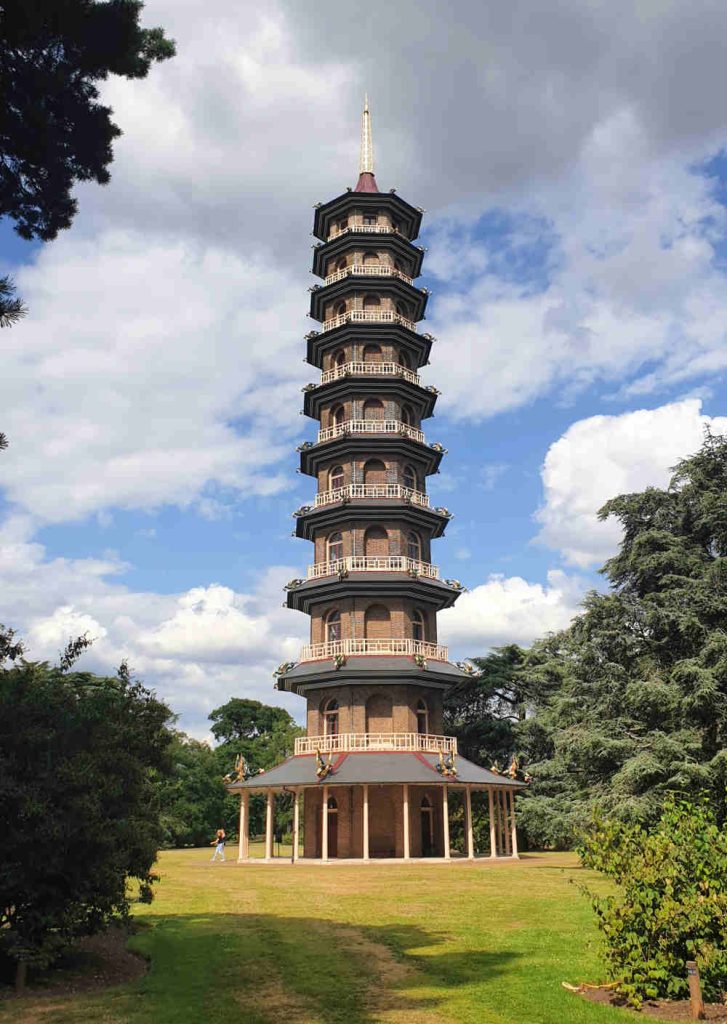
Built in 1762 and in just under a year, the Great Pagoda at Kew was one of Georgian London’s famous curiosities, a building which the public deemed would not remain standing when it was built. It was used by the Royal Family to entertain, designed during a time when Chinoiserie was the design choice du jour.
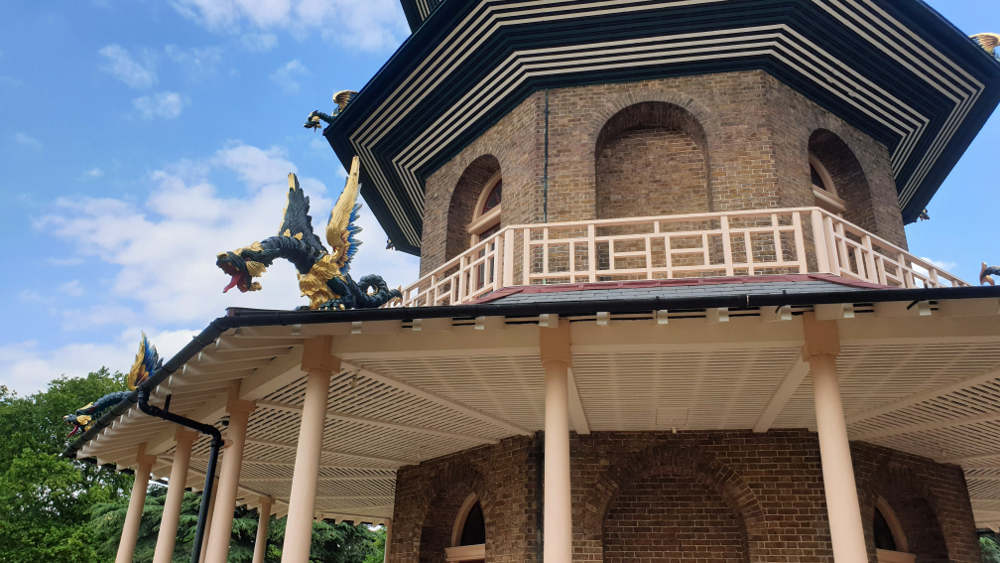
80 magnificent dragons perch on the Great Pagoda, but these splendid creatures are new additions. It is said that George IV sold the original wooden dragons to pay for his mounting gambling debts. Today’s eight low-level dragons were fashioned by British master carvers from up and down the country, and each weighs one ton. The 72 other dragons are much lighter and were made using 3D printing techniques.
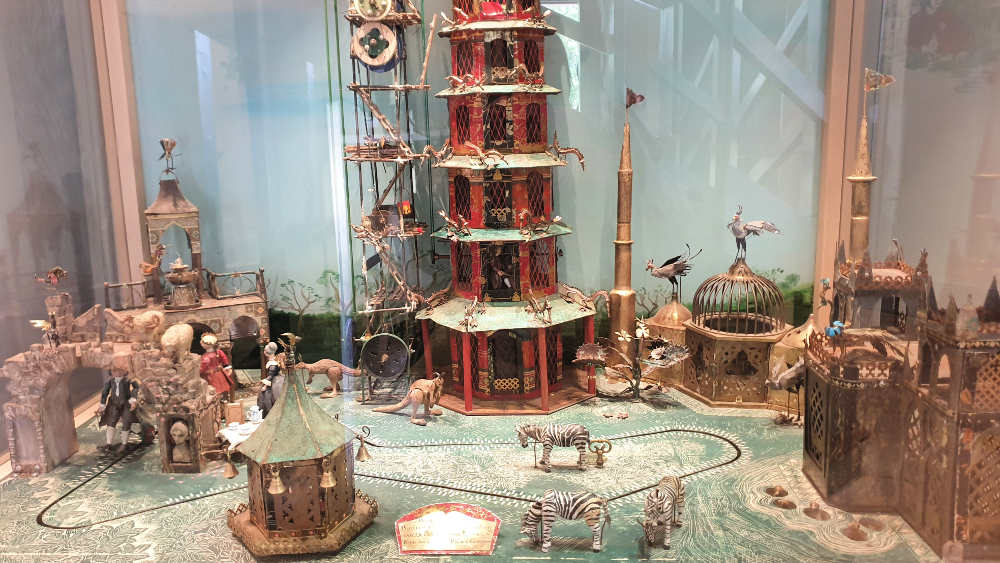
The Pagoda once sat with other strange bedfellows including a Turkish Mosque, a Moorish Alhambra, a Confucius Temple, and my favourite, a waxwork room where Shakespeare took tea with Queen Elizabeth I.
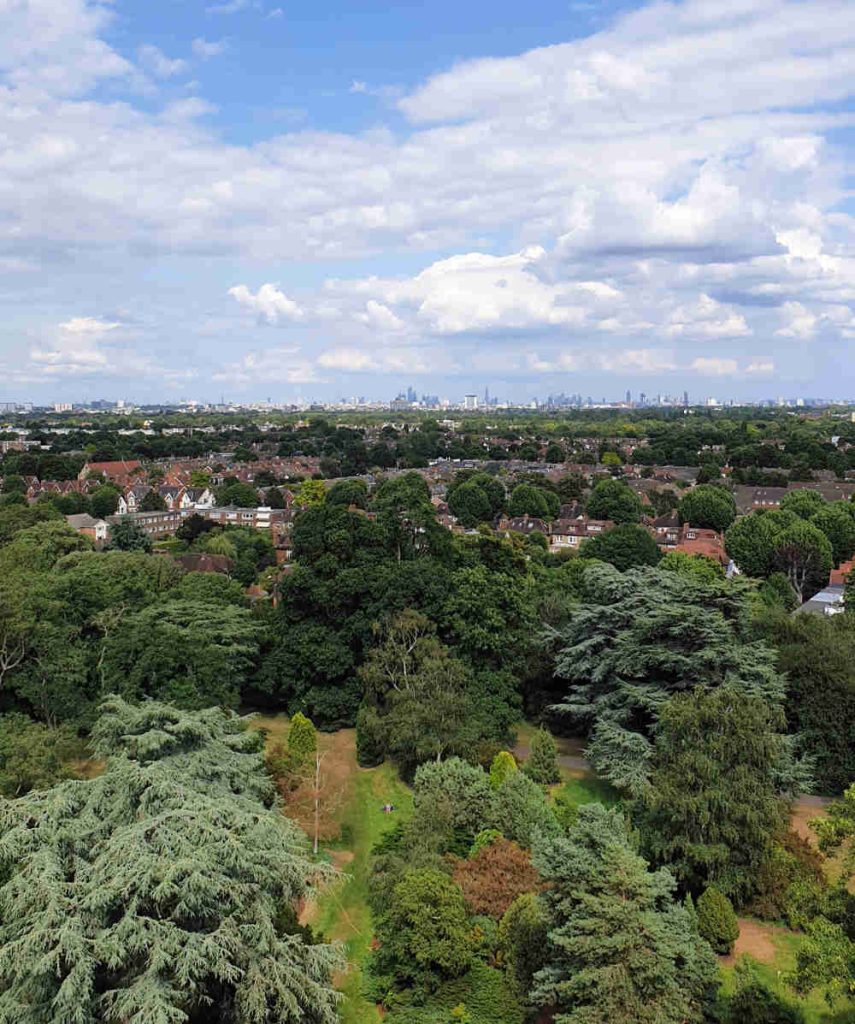
The canny George III used to walk unsuspecting politicians to the top where puffed out, they were easier to manipulate to his will.
Thankfully, the Great Pagoda survived several close shaves from being Blitzed, and today, you can climb up the 253 stairs for some of the best views in London. And if you want to see some real dragons, head over to the Princess of Wales Conservatory for some of the Chinese Water variety.
Please note: due to Covid-19 restrictions, the Pagoda is currently closed.
Princess of Wales Conservatory
The Princess of Wales Conservatory is a maze of plants, cacti, succulents, orchids and carnivorous plants. During its construction, Sir David Attenborough buried a time capsule in the building’s foundation of the building with a collection of seeds and food crops, due to be opened in 2085. Just don’t be fooled into thinking this is named after the late Princess Diana. This Princess of Wales refers to Princess Augusta who was the original founder of Kew Gardens back in 1759 (although Diana did open the conservatory in 1987).
The Hive
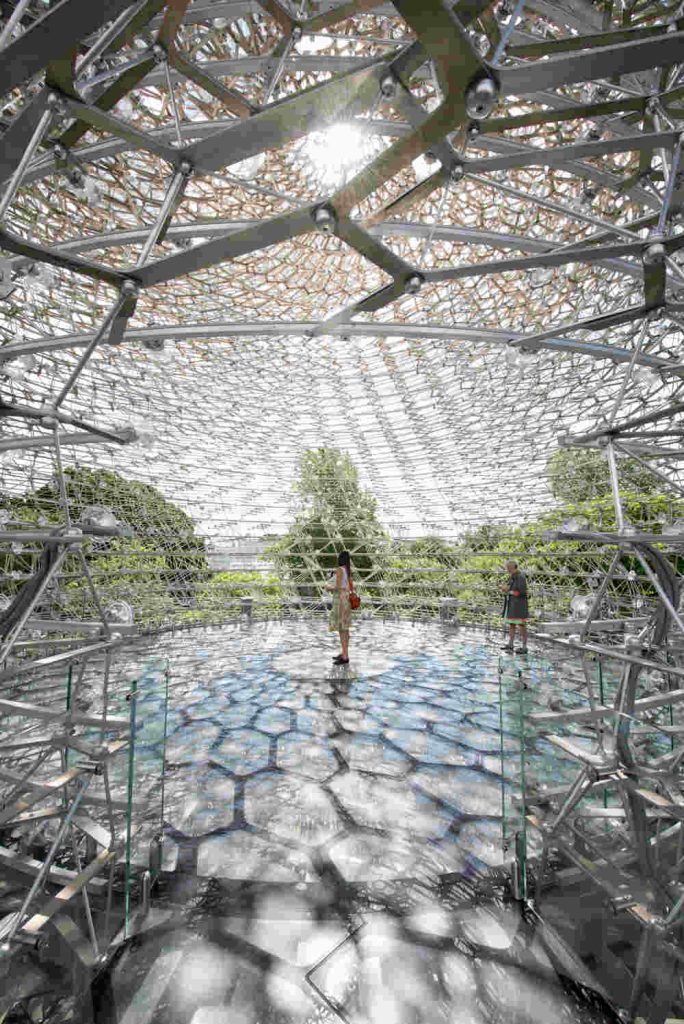
One of my favourite outdoor sculptures, The Hive stands 17 metres proud and is one of Kew’s most iconic pieces. Yes, it’s open to the elements, but come rain or shine, you won’t want to miss this. Designed by artist Wolfgang Buttress, 1000 glowing LED lights mimic the vibrations from Kew’s own bees. I always wonder what Pooh Bear would make of this extraordinary metallic lattice that hums that promising sound of sweetness. Honeybees are known to buzz to the C key, and Kew have installed a musical symphony which plays to this same key. It’s mesmerising and you (and Pooh, I will wager) will never want to buzz off.
Palm House
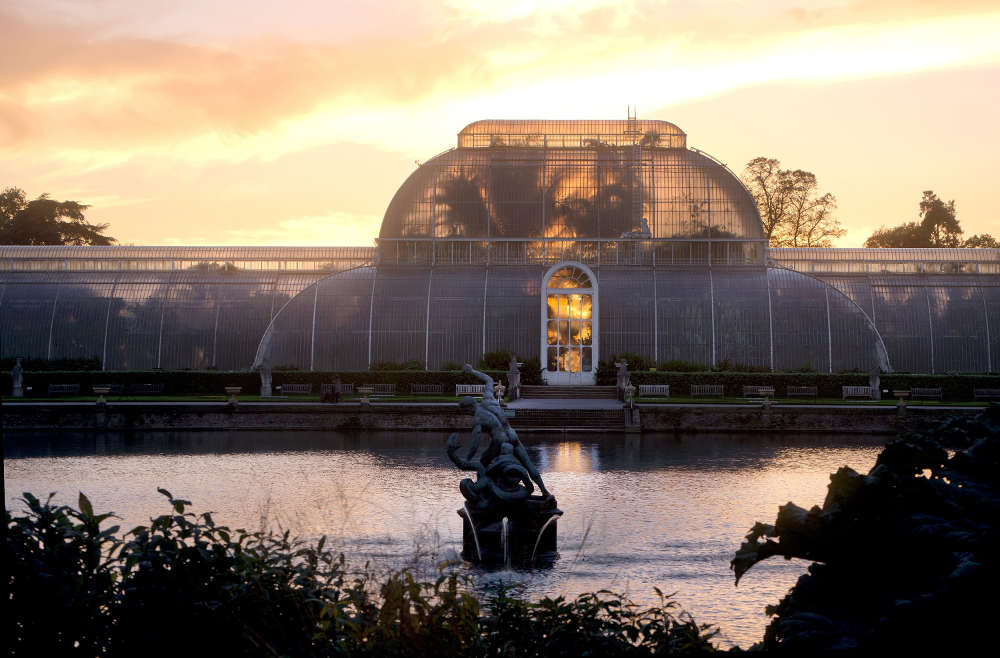
A window cleaner’s nightmare, the Palm House in Kew was built using 16,000 panes of toughened glass. It houses endangered species, some extinct ones, and the oldest pot plant in the world. Keep your eyes peeled for another Chinese water dragon and the wrens and robins which nest in the Palm House. I love standing under the watery mist which spits on the plants throughout the day. It’s a cosy space when it’s raining, the sort of place you would want to curl up and read a Victorian whodunit.
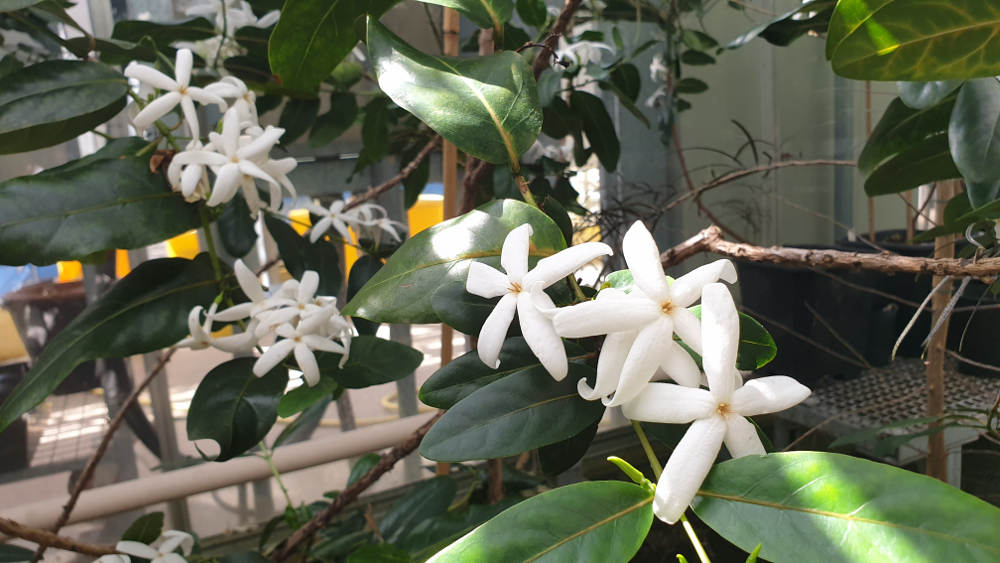
The café marron, a member of the coffee family, was once thought to be extinct until a young boy in the island of Rodrigues saw one whilst out on a school assignment. A sample was sent to Kew who were excited to discover that this was indeed the “extinct” café marron plant. Kew now successfully grows the only example of this rare plant.
Temperate House
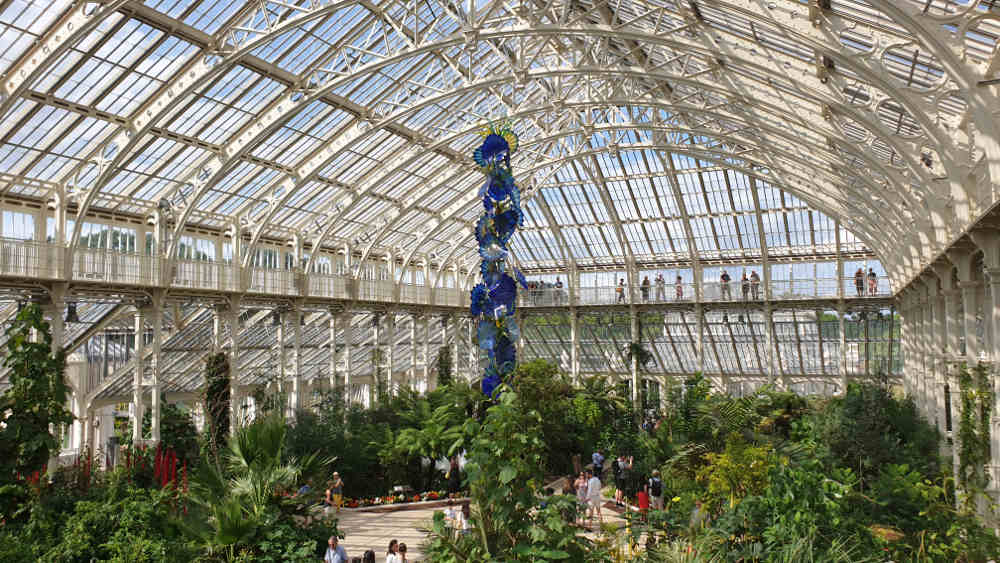
This has to be one of the most beautiful buildings in London and to step inside is to walk into a Victorian architectural wonder. It’s the world’s largest Victorian glasshouse and houses a whopping 1,500 species and 10,000 plants. Look out for the Encephalartos woodii, a South African cycad which is also known as Kew’s loneliest plant.
The Marianne North Gallery
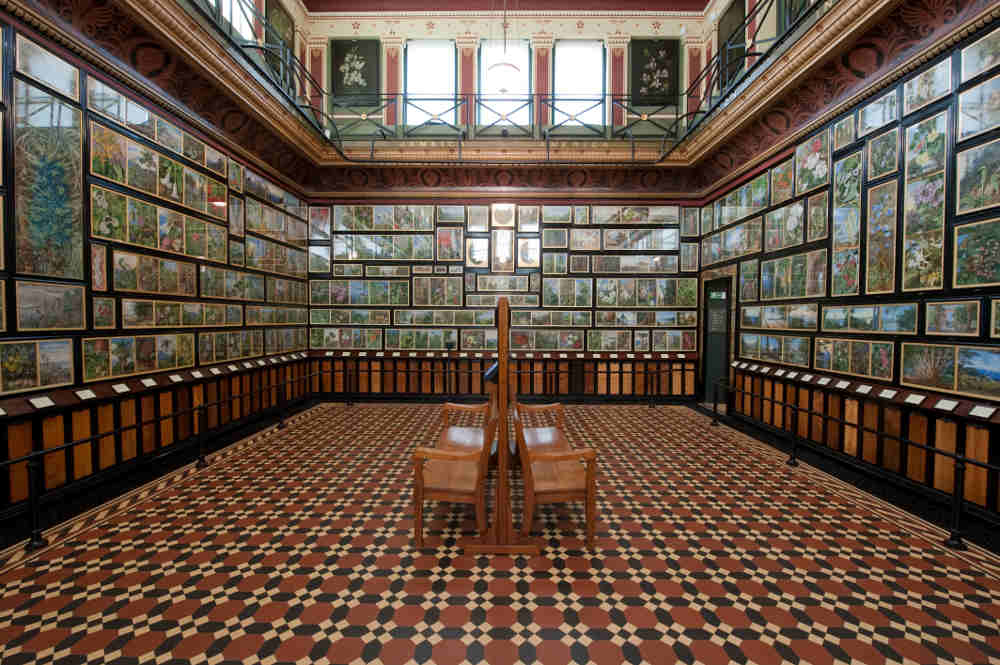
Exotic flowers bloom all year-long on the walls of the Marianne North Gallery. If you’re a lover of botanical art, you’re going to want to pop into see these astonishing paintings (I imagine she was a great inspiration to Georgia O’Keefe.) Marianne’s social circle included Charles Darwin and Sir William Hooker, the first Director of Kew Gardens and a friend of Marianne’s father. The gallery blooms with over 800 paintings which Marianne composed during her 15 years of travel to far flung places. Her technicolour paintings were to become a record of plants and flowers never seen before in the UK.
Please note: due to Covid-19 restrictions, the Marianne North Gallery is currently closed.
The Bonsai House and the Waterlily House
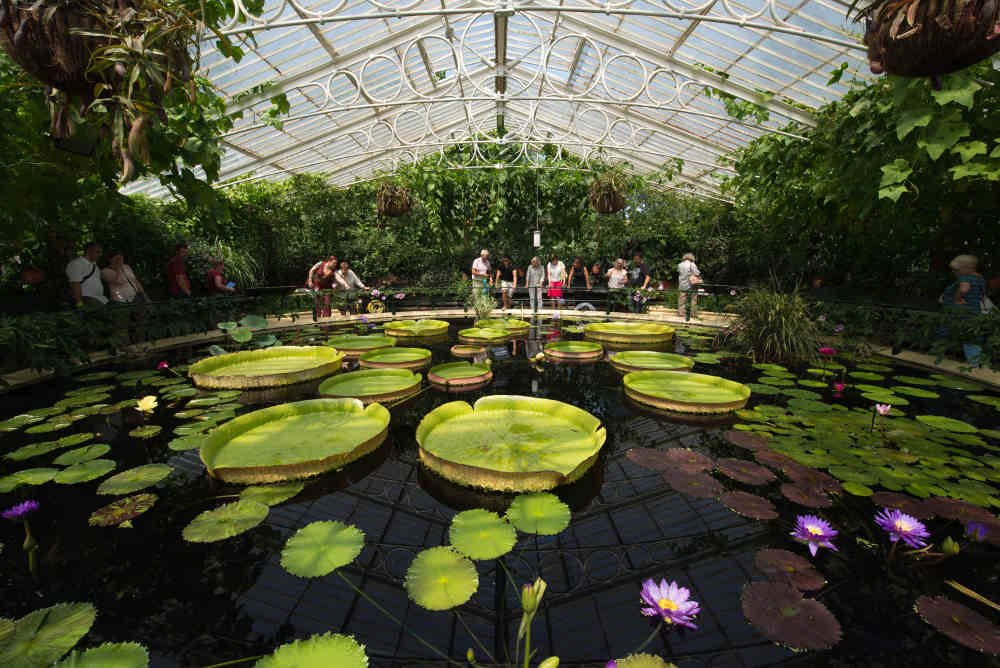
Not to be missed, the Bonsai House displays a rare collection of Lilliputian trees, some of which are 150 years old. The Waterlily House is the hottest room in the Kew house, and contains such treasures such as the Santa Cruz and a fantastic collection of gourds. Joseph Paxton, the man behind the Great Exhibition’s Crystal Palace, was so impressed with a specimen of Kew’s giant waterlily that its structure became the inspiration for the Crystal Palace design.
Kew Palace
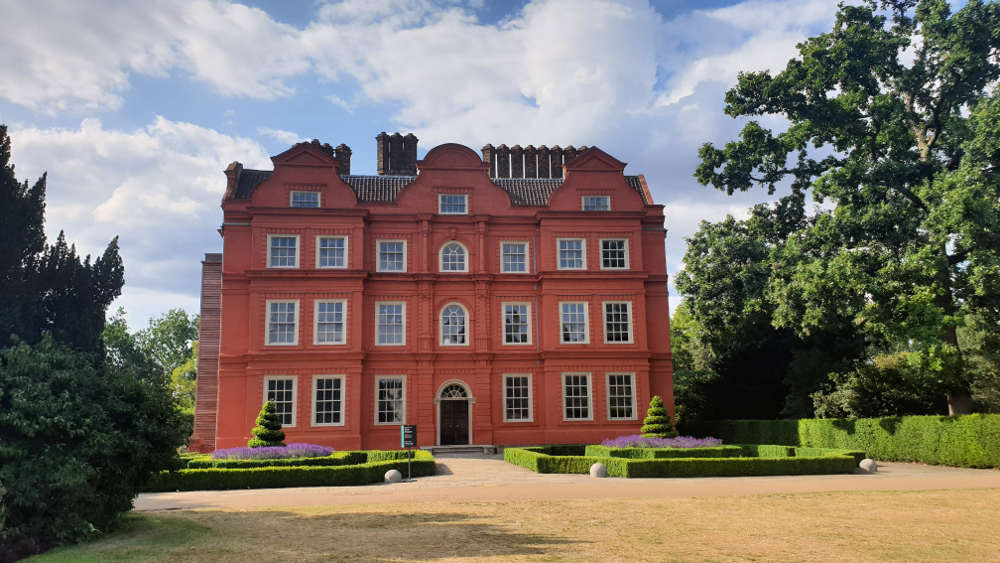
And now we come to the pièce de résistance, but sadly only open seasonally: Kew Palace. It’s the smallest of the royal palaces and was once the intimate home of “Mad” King George III, Queen Charlotte and their 15 children. This doll’s house home played asylum to George III’s bouts of mental illness, and it’s where Queen Charlotte died (you can see the “death chair” where it happened in her bedroom upstairs). But Kew Palace was also once a happy refuge for the royal family. The intimate spaces here are homely and domestic, less gilt and pomp that your standard royal pad.
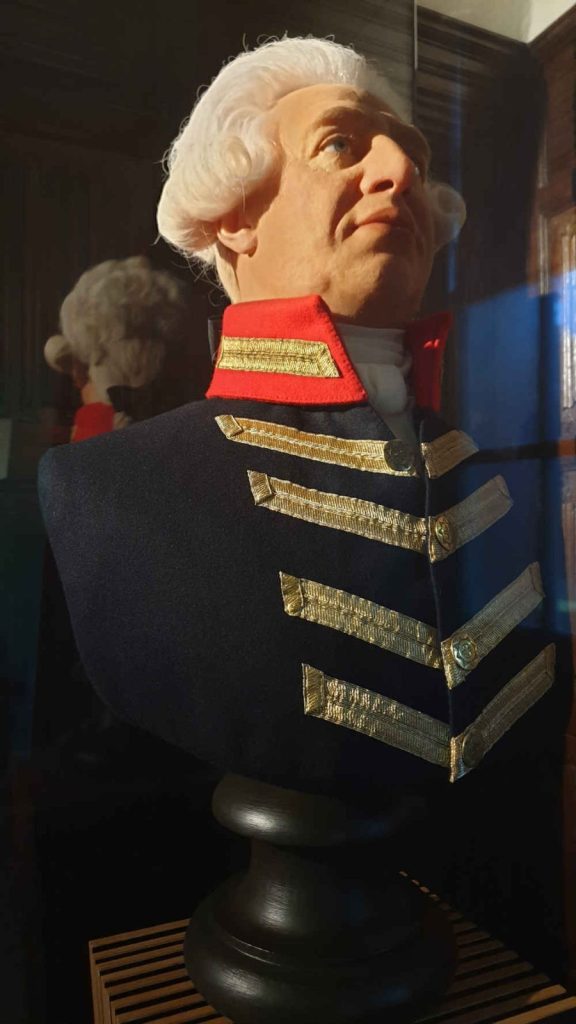
Madame Tussaud herself made this mould for this eerie waxwork of King George III.
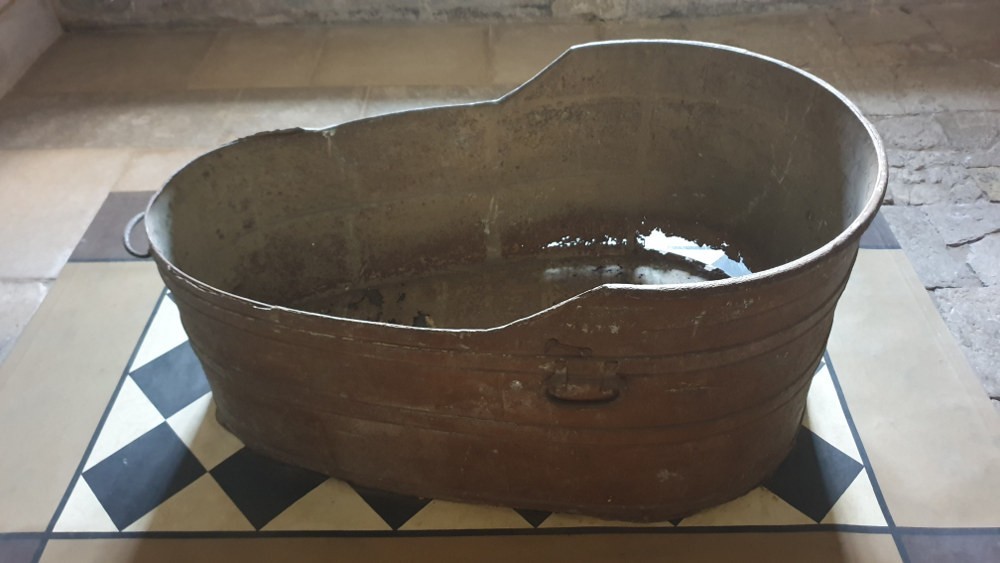
This brown tub, thought to be used by “mad” King George for his regular soaks, was discovered in a chimney opening during a renovation of the palace in 2012.
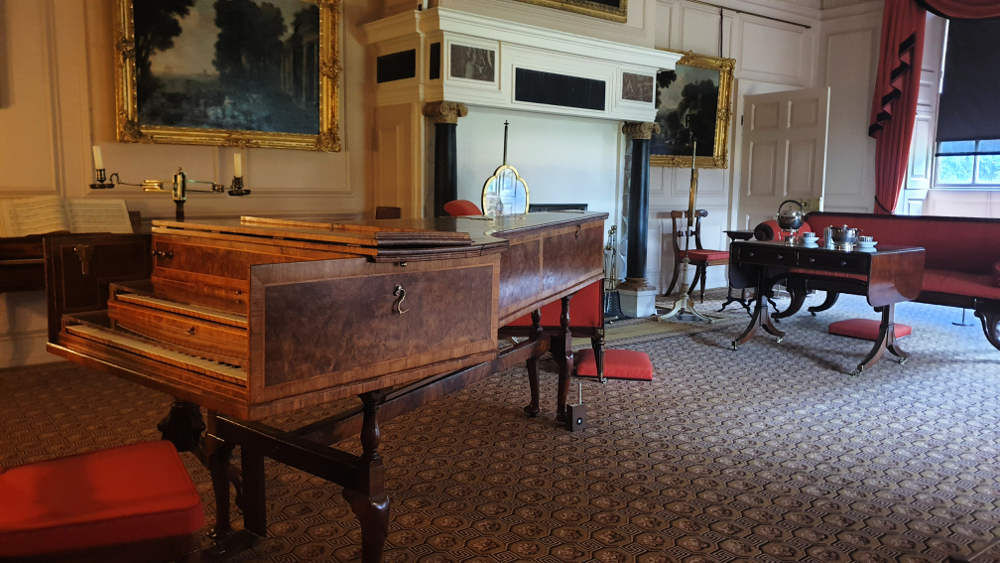
Queen Elizabeth celebrated her 80th birthday in Kew Palace. The menu included smoked salmon, venison and chocolate cake.
Visit the Royal Kitchens and get a taste of Georgian culinary life. Original copper boilers and charcoal stoves are on view (and still used today during some cooking demos). The elm table contains the original grooves left behind by years of Georgian cheffing.
Please note: due to Covid-19 restrictions, Kew Palace is currently closed.
Queen Charlotte’s Cottage
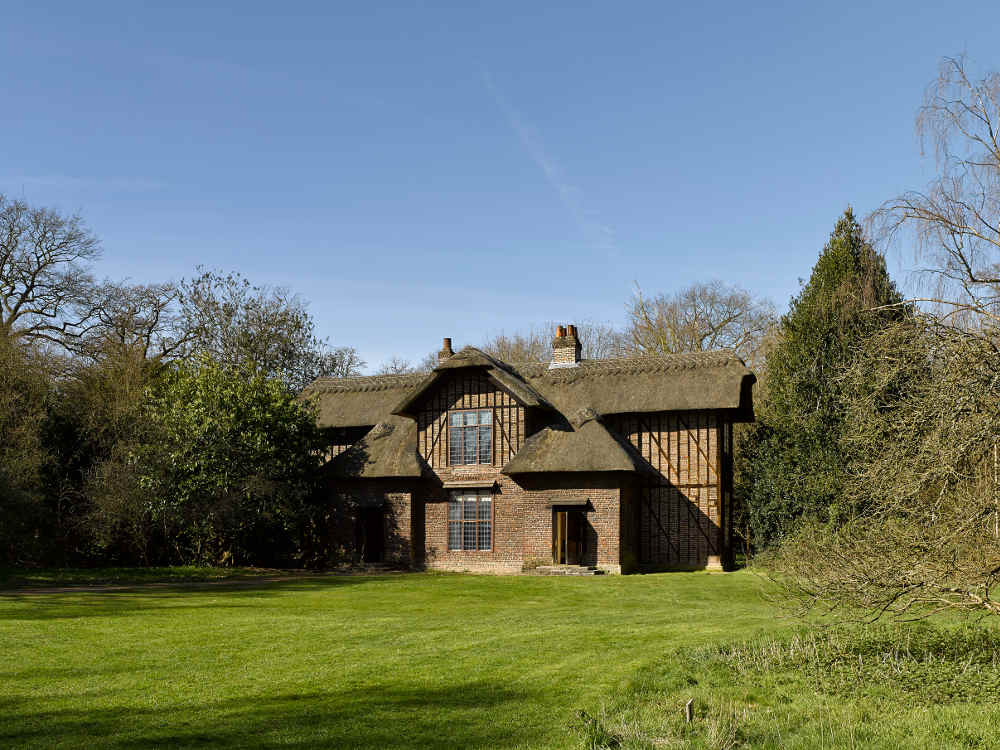
This rustic cottage was used by the royal family for tea breaks and for resting during walks in the gardens. The paddock located at the rear was once home to the first kangaroos to hop into England, as well as black swans and buffaloes.
Please note: Kew Palace, the Royal Kitchens and Queen Charlotte’s Cottage close at the end of September and re-open early April.
Please note: due to Covid-19 restrictions, Queen Charlotte’s Cottage is currently closed.
The Kew Explorer train
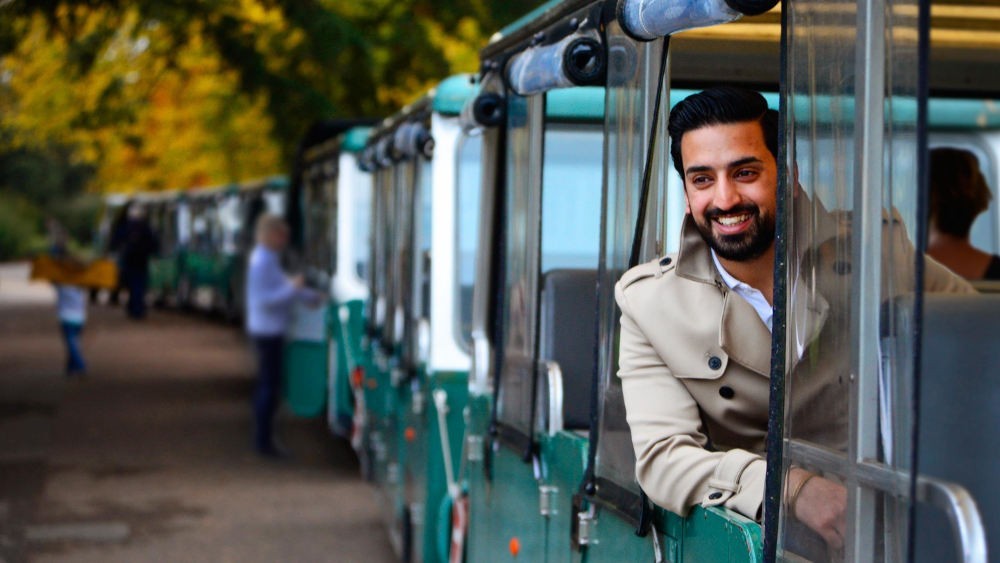
You can tour Kew Gardens on a rainy day in the comfort of the Kew Explorer train which departs every half hour. You can catch it at Victoria Plaza, and the price is included with your online ticket to the Gardens. The tour takes approximately 40 minutes, and you can hop on and off at will.
Please note: due to Covid-19 restrictions, the Kew Explorer is currently closed.
Christmas at Kew

Christmas at Kew is just the thing to banish the Scrooge. I have been in beastly cold weather, and it matters not. The 2.6km artistic twinkly light trail takes about 75 minutes to walk. There’s also a fairground at Temperate House (rides cost £3 each.) From 20 November to 5 January 2020.
Where to eat
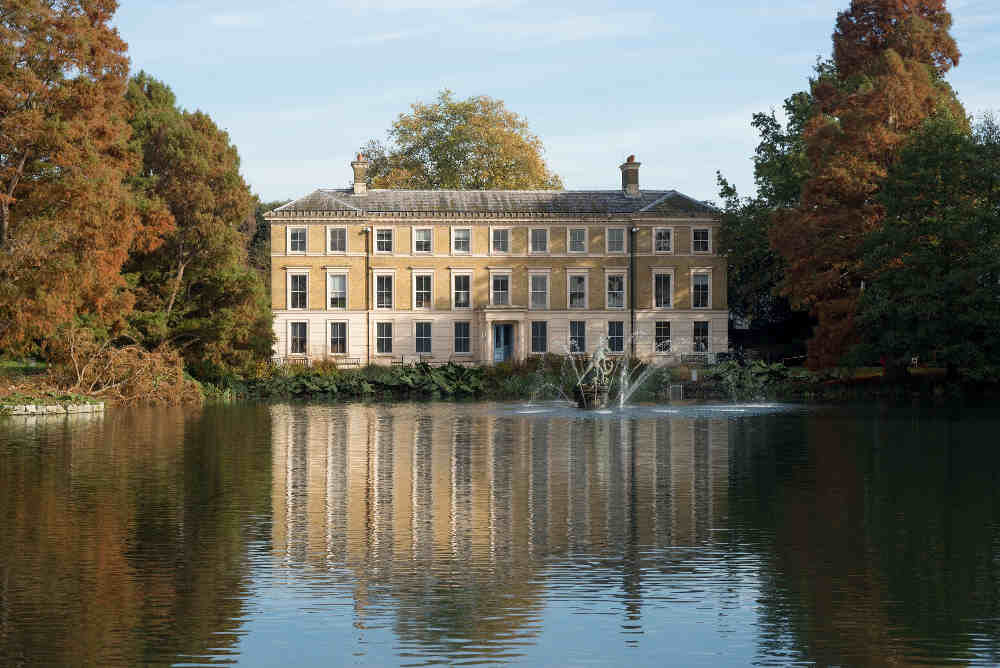
There are six places to eat inside Kew Gardens on a rainy day. The Botanical offers a predominantly plant-based menu with plants and flowers picked the gardens or foraged locally. Once referred to as Museum No 1 and the first purpose-built building in Kew, this stunning historic building overlooks the Palm House Conservatory and lake. It’s the perfect place to rest your soggy feet for a spot of Afternoon Tea where the classic or vegetarian teas is priced at £32.50 (or you could opt for a cream tea at £8.50). Gluten-free and vegan options are also offered.
You can grab and go at the White Peaks Café or if you want to sit inside, there’s a tempting menu for little ones which includes mini vegetable pots, hidden veg mash and an Ice Creamery.
Or if you’ve had enough of Kewing for the day, you could head over to Newens Original Maids of Honour tea room on Kew Road. Newens has been serving Henry VIII’s favourite custardy pastries for 120 years.
On dry days, you can take a picnic and hide away in one of Kew’s green corners. But, do leave the four-legged family members at home, they are not welcome. Try and get to the gardens as early as possible when it’s less busy.


Leave a Reply